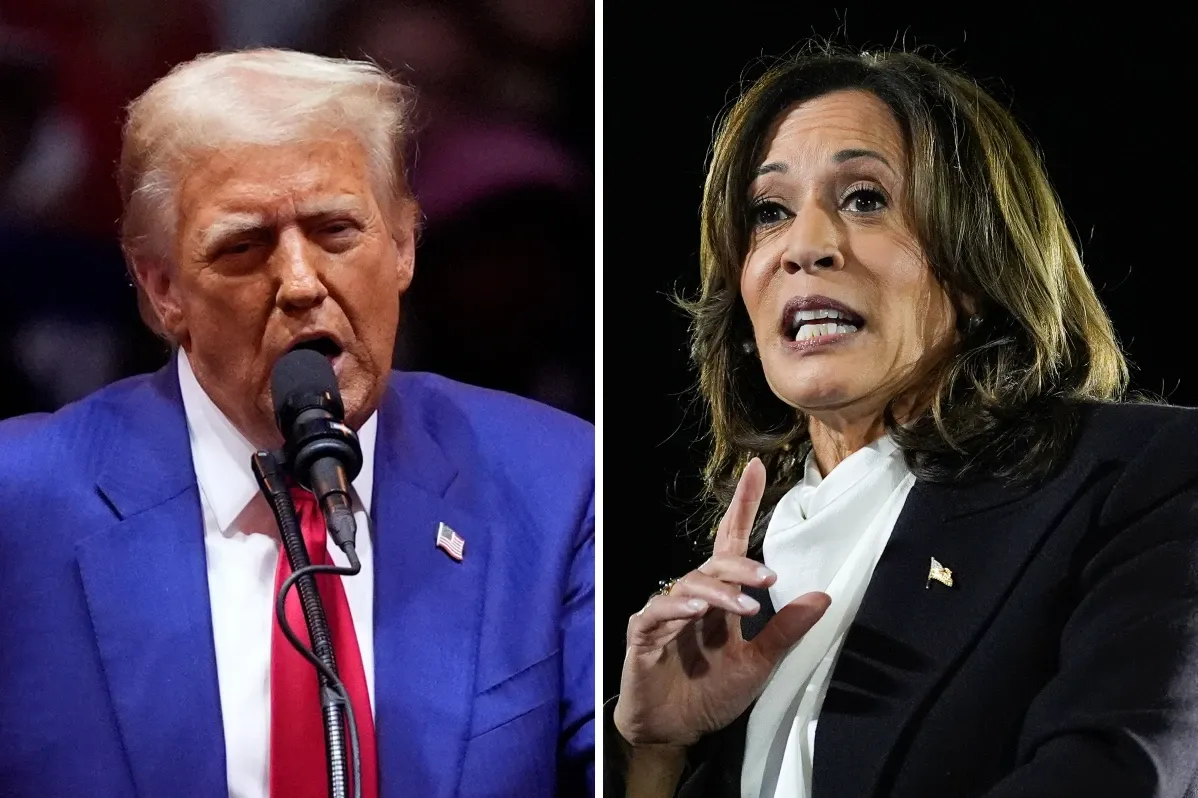Why Filipinos are eagerly awaiting result of Trump-Harris duel for US presidency
As the world awaits for the United States to name its 47th president, Philippine Ambassador to Washington Jose Manuel Romualdez explained the power that Filipino-American votes holds over the US presidential elections.

(From left) Republican presidential candidate former president Donald Trump and Democratic presidential nominee Vice President Kamala Harris (AP photo)
In an interview on ANC’s “Headstart,” the ambassador explained what some 4.5 million Filipino-Americans mean for battleground states that could swing the polls in favor of either Vice President Kamala Harris or former president Donald Trump.
“Oh, yes. Absolutely,” he said when asked about how Filipino-Americans, as a minority group, can influence the elections.
According to the 2022 census, there are about 4.5 million Filipino-Americans in the US, which makes up about 17 percent of the Asian-American population.
They are spread mostly in the states of California, Hawaii, Illinois, Florida, Kansas, and Nevada.
CBS News identified Arizona, Georgia, Michigan, Nevada, North Carolina, Pennsylvania, and Wisconsin as the battleground states for the 2024 presidential elections.
Though Romualdez said that the US election is crucial for the entire world because of conflicts in the Middle East and the Asia-Pacific region, he expressed confidence that the Philippines-US relations will continue to be “very strong” no matter who wins.
“But, in our case, I’m quite confident that either of the candidates win, we will be in a good place in the sense our relationship continues to be very strong, especially in the defense side,” he added.
“This, of course, will follow the economic part of our relationship with the United States. So, we have a strong defense alliance with the United States, we can expect that the economic part of it will also be strong.”
He also underscored the need for the US “to play the role of being a balancing between the free world and the other world that we are speaking of that we know.”
But in the United States, Romualdez admitted that much of the issues that affect American votes centered around the economy and inflation.
“It is adding up what they feel right now is the reason why they are looking at Donald Trump who can change that,” he said.
“That’s probably one of the main issues against the current Biden administration,” he furthered.
The ambassador echoed some concerns about a possible Trump presidency because of the reported global tariff plan by the Republicans.
“There is a certain extent it will. I think that we are concerned about really if Trump becomes president again,” he said.
But despite Trump’s plans “to bring American business back in the US,” Romualdez believed “the US will need supplies coming from the Asian region.”
“I think this is where we will be negotiating obviously if there is a Trump administration. Our economic managers, our economic team to be able to get to the picture to try to negotiate where it will be beneficial for both the US and Philippines,” he explained.
The envoy, on the other hand, allayed fears about Trump’s reported plan to conduct the largest deportation in history, citing the logistical and financial nightmare of doing so.
“I would doubt that. Some of the analysts have said here it will cost a lot of money to track these illegal immigrants. It’s gonna take a lot of resources,” he said.
Filipinos gave their two cents on the presidential candicacy of Trump and Harris.
Bernice Ner, who hails from Cavite, underscored how critical the US election to the Philippines because of "what it means to the West Philippine Sea issue".
“We need the US to not only strengthen their alliance with us in terms of our defense posture, but also to be ready to mediate in case of an international conflict,” she said.
Nevada resident, Sara Fabunan-Steck, who is residing in the US for two years now, believes this year's presidential election would impact how she raises her son.
“The outcome of the elections will determine whether I enroll him in the public school system here in the U.S. or choose to homeschool him. The two parties have different views on gender and sexuality and how that is presented to children in schools,” she said.